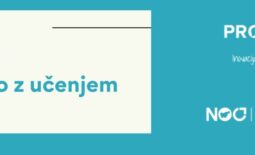“BRUTAL HONESTY” AND THE CREATIVE PROCESS
This week we realized the 23rd SKOJ with the Slovenian Public Relations Association. How are we feeling? Wonderful! I was impressed by the content that the management had been preparing for a long time in close cooperation with the program committee. Anyone who has ever set out to prepare for a conference is aware of how much work lurks in the background, and in particular the situation has changed due to the fact that after more than a year we have all had enough online events. In addition to working in the background and financially supporting our annual conference, we also participated in content making – most often the unenviable position of the last program segment this time belonged to the director Mitja Okorn. And the only thing I can say is: we had too little time. Mitja is a chill professional who has worked hard for his achievements. Which, of course, runs counter to the belief of many that he succeeded overnight. As my colleague would say: “Chop wood, carry water” – that, to the public, invisible part, which we continuously perform every day, leads to results and I was glad that Mitja was brutally honest about it.
We were able to draw quite a few parallels between his and our profession, some foundations are of course common to all. But I was probably most interested in his creative process, especially two parts: kneading the idea and testing (although all of you who have listened to our conversation know that he used different terms instead of “kneading the idea”).
- Kneading the idea (in the case of the film industry it is about creating the final script)
You won’t believe that this part, too, is heavily linked to the continuous work and brutal sincerity of the team you trust to honestly give their feedback. The biggest part of a successful film is the script, which for several months, several hours a day, every day, dissected and transformed to its final form, by people who will not pay attention to words, but their goal will be elsewhere: we want to make a great film. This is also an important lesson for communicators, where it happens too often that we fall in love with an idea and do not want to hear feedback because it would mean big changes that we do not want. What is key? The idea of a project needs to be dissected earlier, before its launch, as feedback from the market will hurt significantly more – financially and emotionally.
- Testing
Once the script gets the final shape and the film is shot, it’s time to edit it, putting each version in front of a smaller audience to get their impressions, allowing them to make changes to the story – sometimes cutting out entire scenes as well as characters. It all depends on the viewers of these tests. And that’s a lesson for us again – before we go into the launch, let’s test the project. I know for many, this is already a standard they don’t think about because it’s part of the process, but this advice is for all those who aren’t doing it yet.




